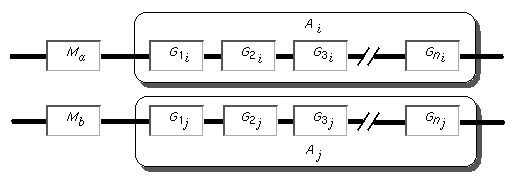
Thesis advisor: Professor Marcus W. Feldman
Thesis Committee: Professor Luigi L. Cavalli-Sforza, Professor Jonathan Roughgarden, Professor Uri Liberman
DAI VOL. 46-01B Page 52, 247 Pages, University Microfilms International, Ann Arbor. Order No: AAG8506152.

In evolutionary genetics models, some features of the population are normally taken as fixed, while others evolve within this fixed background by having heritable variation. Background features include sexual reproduction, mutation, recombination, migration, etc.. In order to study the evolution of these background features, models have been examined in which they are under the control of a modifier gene. Using the approach of Feldman (1972), Karlin and McGregor (1974) sought a general theory for the evolution of modifier genes, and conjectured a "Mean Fitness Principle". It holds for several cases but fails for others. A "reduction principle" has been offered by Feldman (1980) as an alternative where recombination, migration, and mutation are found to evolve under constant selection regimes to reduced rates. Other classes of models exist where reduction is not the only outcome, and other complex behavior can occur.
This thesis developes a new approach to the problem. The central idea is that besides selection, another basic process, transformation, is occurring in deterministic population genetics models. Transformation is any process that results in offspring being of different types from their parents. This idea is formalized as transition probabilities from parent types to offpring types. Phenomena such as genetic load in populations at equilibrium, gene frequency cycling, and decreasing mean fitness, are shown to result from the presence of transformation. Modifier gene models concern the evolution of the transformations themselves.
By using a general formulation of transformations, modifiers are treated in a unified way, including modifiers of gene conversion, unequal crossing over, sexual reproduction, and cultural transmission. The reduction principle is explained, and extended (for tightly linked modifiers) to models with multiple alleles, arbitrary selection, including frequency and density dependence, and arbitrary processes being modified. A principle is offered to explain when it does not operate. The strength of selection induced on the modifier is found to range on the order of the genetic load. A general formula is shown for "viability-analogous" modifier polymorphisms, conjectured by Feldman (1980).
Finally, a new principle is offered to explain the evolution of transformations through modifier genes: rather than evolving to increase the mean fitness, modifiers that are not themselves undergoing transformation appear to evolve to decrease the genetic load.